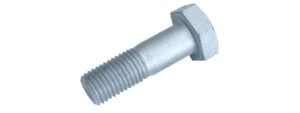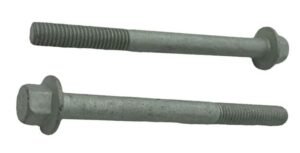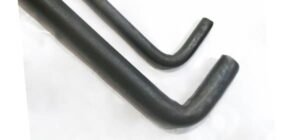In engineering and construction, the choice of fastener material will affect performance, safety, and cost directly. Different materials have different properties—like strength, rust resistance, temperature tolerance, and how they meet industry standards. Below we list the most common fastener materials, and when it’s suitable to use each one.
Quality fasteners are typically manufactured using carbon steel, alloy steel, stainless steel, aluminum, titanium, brass, bronze, and engineered plastics like nylon. Material selection depends on strength requirements, environmental exposure, corrosion resistance, and industry-specific standards such as ASTM, DIN, or ISO. Each material offers unique mechanical and cost-performance characteristics for specific use cases.
Let’s now explore each material type and its application in more detail.
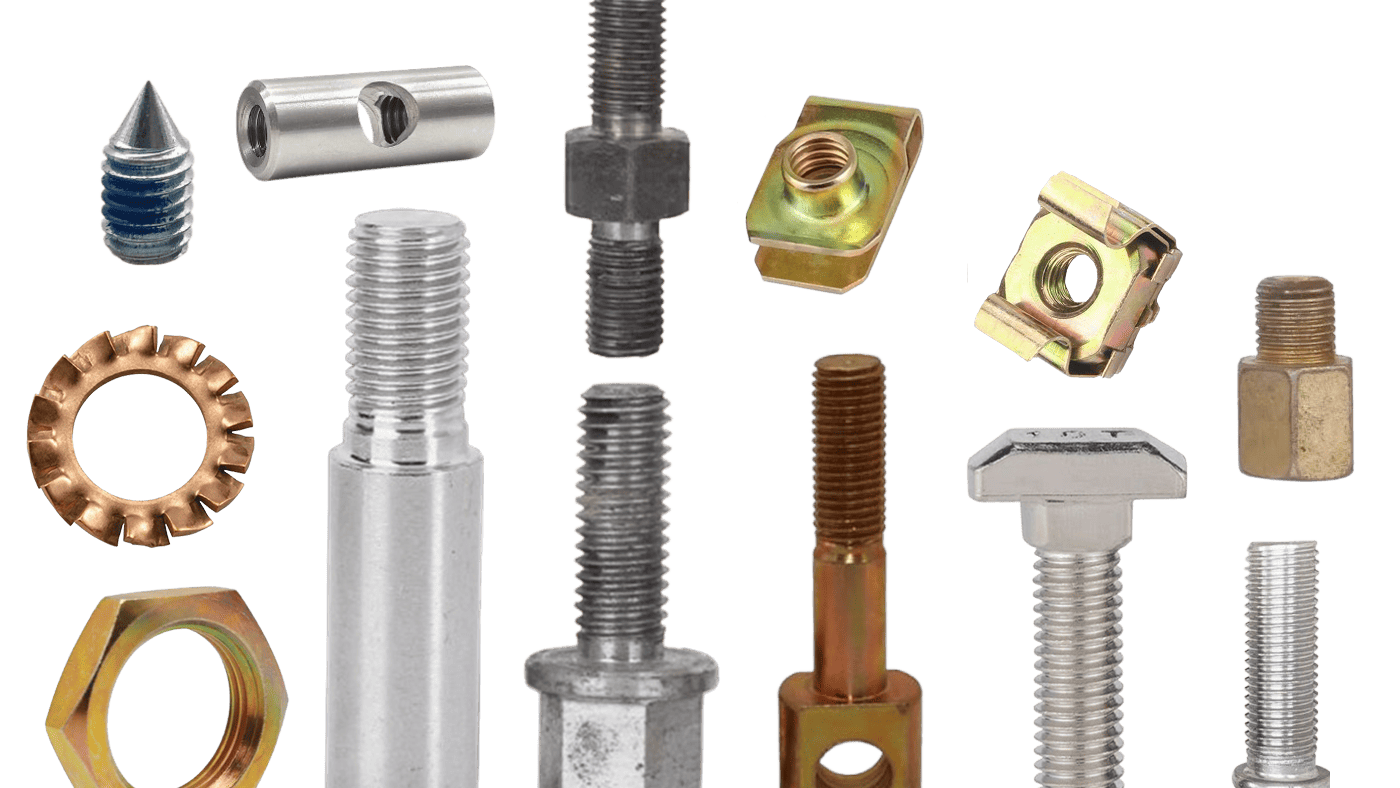
Steel Fasteners (Carbon Steel and Alloy Steel)
Steel is the most popular material for making fasteners. It’s used for about 90% of all bolts, screws, and nuts.
Carbon Steel is very common because it’s strong, easy to get, and not expensive. To protect it from rust, we usually add coatings like zinc, chrome, or black oxide.
Alloy Steel is stronger. It includes extra elements like chromium or molybdenum to make it harder. It’s a good choice when high strength is needed—like in cars or big structures.
Mechanical Strength:
Carbon steel fasteners usually fall between Grade 2 to Grade 8, with tensile strength up to 150,000 psi. Alloy steel fasteners can go even higher, depending on the use.
Standards We Follow:
ASTM A307, SAE J429, and DIN 933 are common standards for these kinds of fasteners.
Stainless Steel Fasteners
Stainless steel fasteners are very popular because they don’t rust easily and look nice. They’re a good choice when you need clean appearance and long-term use in tough environments.

The most common types are A2-70 (also called 304) and A4-80 (316). These are often used in marine areas, food machines, chemical plants, and medical tools.
They have medium to high strength (about 70–100 ksi), depending on the grade. No need to add extra coating. They last well even in wet or salty areas. Common standards are ISO 3506, ASTM F593, and DIN EN 1.4301.
Aluminum Fasteners
AAluminum fasteners are light in weight and resist rust well. That makes them a good choice when you want to reduce weight, like in electronics or aerospace. But please note—they’re not as strong as steel or titanium.
One big advantage is their weight. Aluminum fasteners are only about one-third the weight of steel. Also, they naturally form a thin oxide layer that protects against rust.
However, the strength is lower—about 30 ksi—and the material is softer, which means it can strip more easily during use.
These are often used in electronics, airplanes, transport equipment, and other light-load projects. The common alloy types we use are 6061 and 2024.
Standards we follow: ASTM B211 and AMS-QQ-A-200.
Titanium Fasteners
Titanium is a high-end material for fasteners. It’s very strong but also very light—about 45% lighter than steel. The tensile strength often goes over 130 ksi. At the same time, it works well in seawater and high-temperature conditions.

This material is widely used in aerospace parts, medical implants (because it’s safe for the human body), and military or marine projects.
It’s also a good choice because it doesn’t rust easily, doesn’t need much maintenance, and is nonmagnetic. Plus, it resists galvanic corrosion.
Standards: ASTM B348, AMS 4928, ISO 5832-2.
Brass and Bronze Fasteners
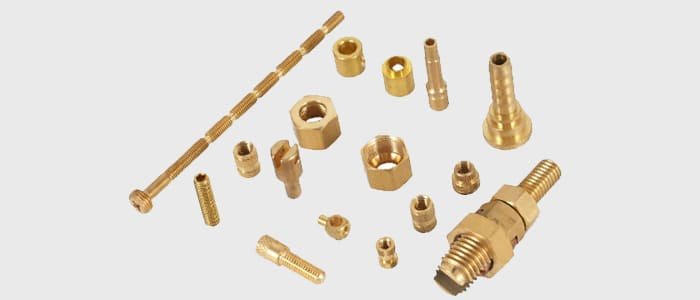
These copper-based materials—brass and bronze—are often used because they look nice, conduct electricity well, and offer fair strength.
Brass (Copper + Zinc) is a good choice for electrical parts and decorative uses. It has decent resistance to rust and works well in dry environments.
Bronze (Copper + Tin) is stronger than brass. It performs better in wet or marine conditions and is good for parts like bearings.
You’ll often see these materials used in plumbing, electrical terminals, antique items, and building decorations.
Standards: ASTM B16 for brass, ASTM B505 for bronze.
Plastics and Nylon Fasteners
Nylon and other plastic materials are now widely used where fasteners need to be light, non-conductive, and resistant to chemicals.
- Advantages:
- Electrical insulation
- Corrosion and chemical resistance
- Lightweight (density ~1.1 g/cm³)
- Limitations:
- Not suitable for high-load or high-temperature environments
- Typically used in non-structural applications
Common Materials: PA66 (Nylon 6/6), PTFE (Teflon), PEEK (for high-performance requirements)
Applications: Circuit boards, lab equipment, consumer electronics
Standards: ASTM D4066, MIL-DTL-1222
Coatings and Surface Finishes
Surface coatings enhance the performance of metallic fasteners without changing their base material. Common treatments include:
- Zinc plating: Adds corrosion resistance at low cost
- Hot-dip galvanization: Suitable for outdoor/structural use
- Black oxide: Improves appearance and moderate corrosion resistance
- Dacromet: Advanced anti-corrosion coating, often used in the automotive industry
Reference Standards: ASTM B633 (electroplated coatings), ISO 4042, DIN EN ISO 10683
Material Selection and Compliance Standards
When choosing fasteners, it’s crucial to reference engineering standards to ensure strength, compatibility, and long-term reliability. Key factors include:
- Tensile Strength (ksi or MPa)
- Yield Strength
- Hardness (Rockwell or Brinell)
- Fatigue Resistance
- Environmental Exposure (temperature, chemical exposure, humidity)
Industry Standards to consider:
- ASTM (American Society for Testing and Materials)
- DIN (German Institute for Standardization)
- ISO (International Organization for Standardization)
- SAE (Society of Automotive Engineers)
Comparison Table of Fastener Materials
| Material | Strength | Corrosion Resistance | Typical Applications |
|---|---|---|---|
| Carbon Steel | High | Moderate (with coating) | Construction, machinery |
| Alloy Steel | Very High | Low | Structural, automotive |
| Stainless Steel | High | Excellent | Marine, medical, food processing |
| Aluminum | Moderate | Good | Electronics, aviation |
| Titanium | Very High | Excellent | Aerospace, medical, military |
| Brass/Bronze | Low to Moderate | Good | Electrical, decorative |
| Nylon/Plastic | Low | Excellent | Electronics, non-structural |
Frequently Asked Questions (FAQ)
Q: What is the strongest fastener material?
A: Titanium and high-grade alloy steels provide the highest tensile strength, often exceeding 150 ksi. However, the right material also depends on environmental and design constraints.
Q: Which fastener material is best for outdoor use?
A: Stainless steel (particularly 316/A4) and hot-dip galvanized carbon steel are excellent choices due to their rust resistance and weather durability.
Q: Are nylon fasteners reliable?
A: Yes—for low-load, non-structural applications. Nylon offers great chemical resistance and is ideal for electronic or lightweight uses, but not suitable for structural loads.
Q: What standard should I refer to for fastener selection?
A: For most applications, consult ASTM, DIN, or ISO standards, depending on your geographic region or industry requirements.
Conclusion
Choosing the right fastener material requires balancing strength, corrosion resistance, weight, and cost. Steel remains dominant for general applications, while stainless steel, titanium, aluminum, and engineered plastics fulfill specific technical needs. Understanding each material’s performance helps ensure safety, compliance, and efficiency in your project.
Contact Hengrui Fastener for Custom fastener
For specialized applications that require custom solutions, Hengrui Fastener offers high-quality, customizable fasteners. Whether you need a specific size, material, or finish, Hengrui can provide tailored fasteners to meet your exact requirements. Visit Hengrui Fastener to learn more about our products and services.



